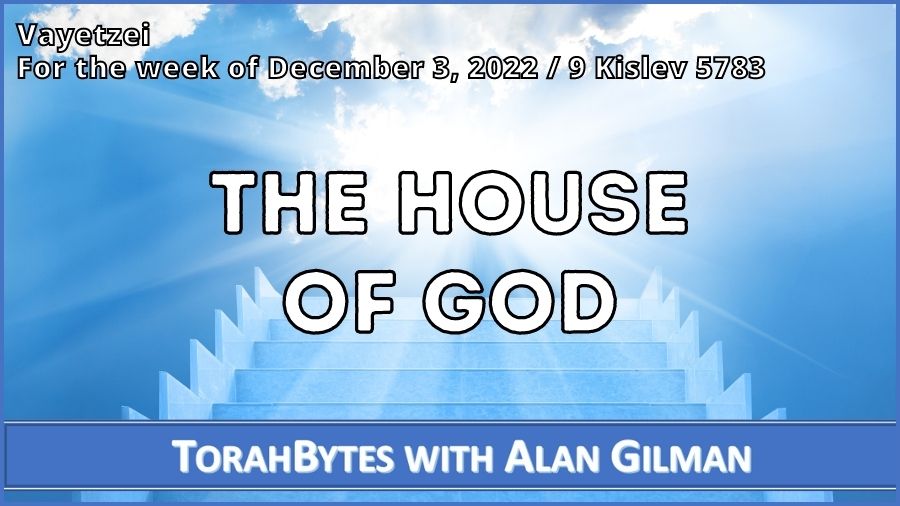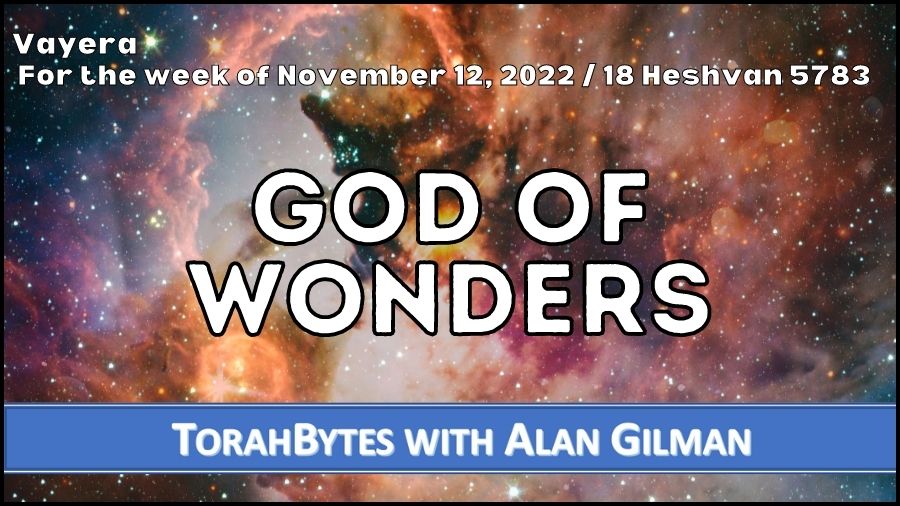For the week of December 3, 2022 / 9 Kislev 5783

Vayetzei
Torah: Bereshit/Genesis 28:10 – 32:3
Haftarah: Hosea 12:13 – 14:10 (English 12:12 – 14:9)
Originally posted December 9, 2000 / 12 Kislev 5761
Revised version from the book Torah Light: Insights from the Books of Moses
Download Audio [Right click link to download]
Then Jacob awoke from his sleep and said, “Surely the Lord is in this place, and I did not know it.” And he was afraid and said, “How awesome is this place! This is none other than the house of God, and this is the gate of heaven.” (Bereshit/Genesis 28:16–17)
Jacob had a vision of God in a dream. He’d never had an experience like this before. When he awoke, he surmised that there was something special about the place he was in, referring to it as the house of God, the gate of heaven. We don’t know if his conclusion about the place was accurate or if it was nothing more than his own interpretation of the experience.
Jacob assumed that this was a special place. He gave a new name to the town, calling it Bet-el (English, Bethel)—meaning “House of God”—and set up a pillar there. He then made a pledge that if God would keep his promise to bring him back there, this same god would be his God.
Whatever the significance of the place, Jacob thought God was more in Bet-el than he would be in the land of his ancestors where he was going. It would take many years before he realized how real and how present God was. Jacob’s dream was meant to reveal to him that God was going to take care of him. But Jacob focused more on the experience than on the message.
Like Jacob, we sometimes have difficulty knowing God beyond our experiences of him. I know many of us have not experienced anything like Jacob did, but still God is often confined to our specific events, activities, and experiences. We like to focus more on the wonderful things that God does than to learn the lessons those things were designed to teach us.
The essence of idolatry is the substituting of something in place of the reality of God. It may or may not be a physical object that we can touch. It might be a memory or a concept through which we relate to God. These things may function in our lives as helps in knowing God, but the fact is they get in the way.
It sounds so spiritual to be like Jacob and get excited over an experience. But God remained someone who seemed far from him for a very long time. It would not be until later difficult circumstances that God would finally become personal to him.
Could it have been any different for Jacob? We don’t know. But it can be different for us. Instead of getting hyped over what God is doing (or not doing) in our lives, maybe we should listen to what God is saying to us. Let’s stop making monuments of our experiences (or lack thereof) and let God into our hearts right now.
Scriptures taken from the English Standard Version



